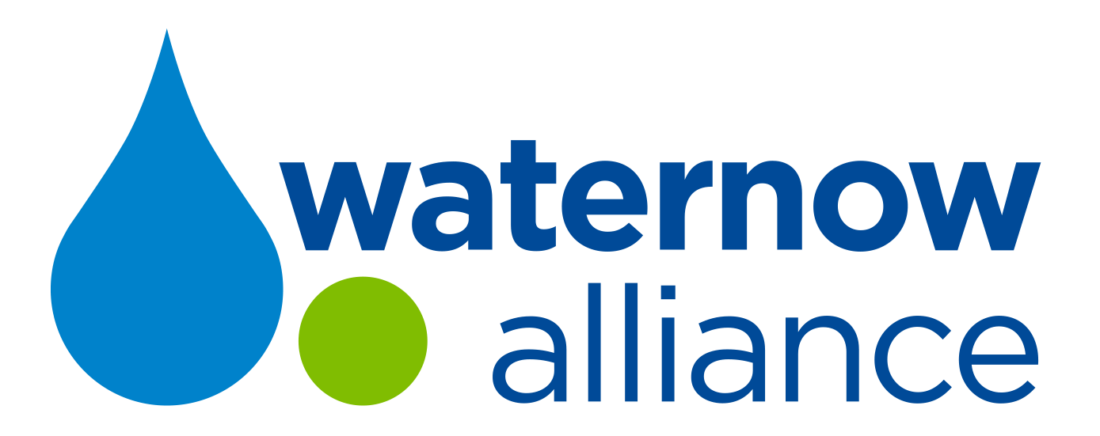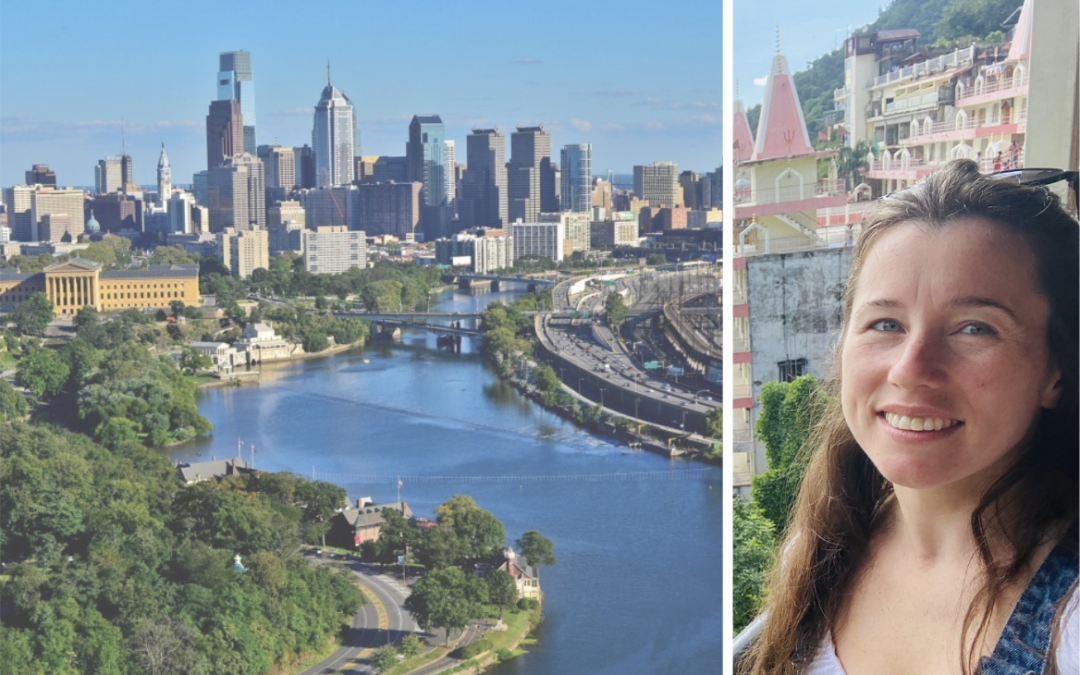Mary Samar
Mary brings a background in water conservation program management and community outreach to her role as Water Policy Associate at WaterNow Alliance. Before joining the team, Mary worked in drought-stricken states where she championed innovative and accessible water use efficiency strategies. Her professional background includes conducting research on how the agriculture sector in central Arizona responds to water shortages linked to drought planning on the Colorado River. Mary earned her BA in English Literature with double minors in Environmental Sustainability and Nutrition and Food Science from Georgia Southern University, as well as a MS in Environmental Sciences and Policy from Northern Arizona University. At WaterNow Alliance, Mary’s work focuses on advancing green infrastructure in the Philadelphia metropolitan area and surrounding Mid-Atlantic region, including aspects of funding and policy advocacy.
What initially compelled you to pursue a career in sustainable water management?
My passion for promoting “wise water use” can be traced back to my childhood, when I often pestered my family to turn off the faucet while brushing their teeth. Growing up with access to clean, abundant water instilled in me a deep appreciation for this precious resource and the need to conserve it.
During my master’s program in Environmental Sciences and Policy, my focus shifted to the challenges faced by the agriculture sector in the U.S., particularly in the arid West. Living in Arizona, I quickly realized that water security and sustainability were top priorities for agricultural producers. Simultaneously, as I explored the region, I fell in love with its desert creeks and natural beauty. Whether perched on a rock in Oak Creek, Sedona, or paddleboarding through East Clear Creek in Winslow, I found myself drawn to the stunning waterways.
My passion for conservation and my admiration for creeks and rivers led me to and in-depth study of the laws governing the Colorado River. Through this work, and including an analysis of Arizona’s Groundwater Management Act, I aimed to provide insights into adaptive management strategies for agricultural producers facing water shortages.
Since then, I’ve had the privilege of working with water utilities at the city and county levels in Arizona and California. My work focused on sustainable water programming, offering resources to support individuals and entities in making “wise water use” a reality.
You’ve had the opportunity to work with cities and utilities on their sustainable water management programs. What lessons did you learn in those roles that you hope to bring to your work with WaterNow?
Working with cities and utilities on sustainable water management programs taught me the value of partnership, leadership, and providing communities with knowledge and resources to enable change. Progress in sustainable water management hinges on involving a variety of stakeholders, including utilities, community groups, businesses, and residents. Building strong partnerships encourages collaboration and information-sharing, resulting in more effective and efficient outcomes. Moreover, leadership at all levels plays a crucial role in guiding initiatives and inspiring action. Most importantly, the greatest lesson I’ve learned is the value of empowering communities through education and connection.
Why were you interested in joining WaterNow Alliance?
I was drawn to WaterNow Alliance because I am excited to approach water management challenges from a different angle. Having worked at water utilities in the past, this shift provides me with the opportunity to focus on driving systemic change through policy reform and advocacy. I am also delighted to join a team of forward-thinking professionals who share my passion for innovative and equitable water solutions.
Which of WaterNow’s current projects and initiatives excites you the most? Why?
I am thrilled to be working with WaterNow Alliance to advance green infrastructure solutions in Philadelphia. This project is particularly meaningful to me as someone who grew up in a nearby suburb. Making a positive impact in my home community through sustainable water management is important to me.
Philadelphia's commitment to green infrastructure aligns with my belief in nature-based solutions for urban challenges. Expanding the “natural urban understory” in the city can enhance resilience to flooding and improve water quality. This work contributes to a healthier environment and a better quality of life for the community. I look forward to being part of this transformative work and making a tangible difference in the place I call home.
Lastly, given your experience, is there a particular strategy that you think has the most unlocked potential to address the many challenges facing local urban water utilities?
I believe that the most promising strategy to address challenges facing urban water utilities lies in integrated water management solutions. Recognizing there is no one size fits all solution, this approach combines nature-based elements with traditional infrastructure to create a more resilient and sustainable system.
By leveraging green infrastructure alongside conventional methods, utilities can better manage stormwater, improve water quality, and enhance overall efficiency. This balanced approach offers multiple benefits, from reducing flooding and heat island effects, to conservation, building enjoyable urban green spaces and providing habitats for local wildlife. Most importantly, prioritizing integrated and decentralized water infrastructure pathways can foster community involvement and meet diverse needs.

